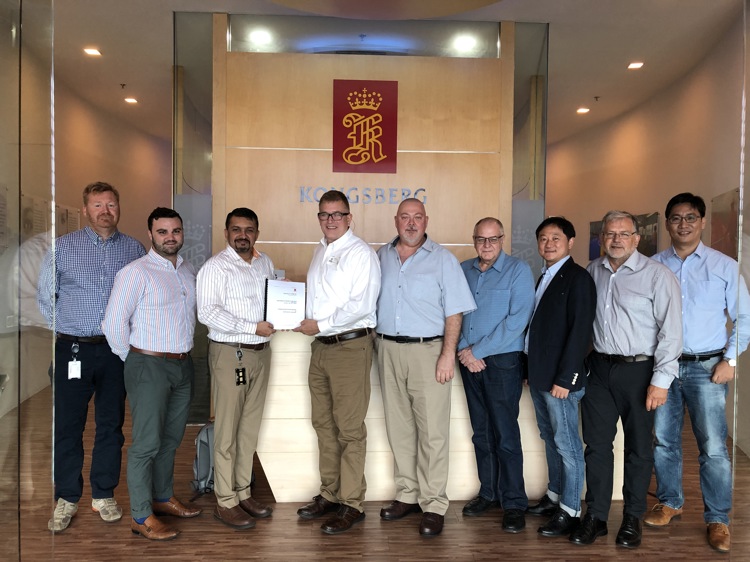KONGSBERG is pleased to announce that it has been contracted to provide a ‘Full Picture’ upgrade for the Tidewater Marine Offshore Supply Vessel (OSV), Bailey Tide.
As a single supplier under the terms of the contract, KONGSBERG will deliver and install a state-of-the-art hybrid power solution including K-Pos DP (Dynamic Positioning), K-Chief 700 IAS (Integrated Automation System) and AGS (Advanced Generator Supervisor) upgrades designed to significantly improve energy efficiency, optimise power management and enhance vessel positioning maneuvers. As well as advancing onboard safety and energy storage, the hybrid solution will substantially cut operational costs by helping to reduce the vessel’s fuel consumption.
The hybrid upgrade will be accompanied with the installation of a KONGSBERG Information Management System (K-IMS), an interactive and collaborative web-based platform which will give Tidewater Marine and its sub-suppliers continuous data access, both on board and on shore. Work on Bailey Tide’s upgrade has already started, and is expected to be completed before May 2020.
“We are hugely looking forward to collaborating with Tidewater on this project,” says Deepak Thomas, Sales Manager from Kongsberg Maritime Singapore, “continuing to deliver the best energy solutions in the maritime sector while simultaneously respecting all environmental requirements. Our AGS software functionality has also proved its worth across the Tidewater fleet in mitigating blackouts and increasing the reliability and safety of the Power Management System, and we’re keen to assist the company in progressing ever further in the pursuit of environmentally-responsible, cost-effective energy efficiency.”
“KONGSBERG’s comprehensive hybrid upgrade positions us as a pioneer in the OSV sector,” adds Jeff Gorski, Chief Operating Officer for Tidewater Marine, “in helping our clients to meet strict environmental regulations, due to be introduced in 2020, for decreasing CO2, NOx and SOx emissions. It manifests our leadership approach towards reducing the carbon footprint on the global maritime map.”

MEDIA CONTACT

